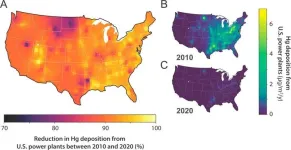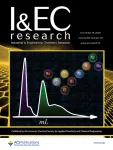(Press-News.org) Sophia Antipolis, 8 June 2023: Patients who had heart attacks during the first COVID-19 lockdown in the UK and Spain are predicted to live 1.5 and 2 years less, respectively, than their pre-COVID counterparts. That’s the finding of a study published today in European Heart Journal – Quality of Care and Clinical Outcomes, a journal of the European Society of Cardiology (ESC).1 The additional costs to the UK and Spanish economies are estimated at £36.6 million (€41.3 million) and €88.6 million, respectively, largely due to absence from work.
“Restrictions to treatment of life-threatening conditions have immediate and long-term negative consequences for individuals and society as a whole,” said study author Professor William Wijns of the Lambe Institute for Translational Medicine, University of Galway, Ireland. “Back-up plans must be in place so that emergency services can be retained even during natural or health catastrophes.”
Heart attacks require urgent treatment with stents (called percutaneous coronary intervention or PCI) to open the blocked artery and restore the flow of oxygen-carrying blood. Delays, and the resulting lack of oxygen, lead to irreversible damage of the heart muscle and can cause heart failure or other complications. When a large amount of heart tissue is damaged, the heart stops beating (called cardiac arrest) and this can be fatal.
During the first wave of the pandemic, about 40% fewer heart attack patients went to hospital2,3 as governments told people to stay at home, people were afraid of catching the virus, and some routine emergency care was stopped. Compared to receiving timely treatment, heart attack patients who stayed at home were more than twice as likely to die,4 while those who delayed going to the hospital were nearly twice as likely to have serious complications that could have been avoided.5
This study estimated the long-term clinical and economic implications of reduced heart attack treatment during the pandemic in the UK and Spain. The researchers compared the predicted life expectancy of patients who had a heart attack during the first lockdown with those who had a heart attack at the same time in the previous year. The study focused on ST-elevation myocardial infarction (STEMI), where an artery supplying blood to the heart is completely blocked. The researchers also compared the cost of STEMIs during lockdown with the equivalent period the year before.
A model was developed to estimate long-term survival, quality of life and costs related to STEMI. The UK analysis compared the period 23 March (when lockdown began) to 22 April 2020 with the equivalent time in 2019. The Spanish analysis compared March 2019 with March 2020 (lockdown began on 14 March 2020). Survival projections considered age, hospitalisation status and time to treatment using published data for each country. For example, using published data, it was estimated that 77% of STEMI patients in the UK were hospitalised prior to the pandemic compared with 44% during lockdown. The equivalent rates for Spain were 74% and 57%. The researchers also compared how many years in perfect health were lost for patients with a STEMI before versus during the pandemic.
The cost analysis focused on initial hospitalisation and treatment, follow-up treatment, management of heart failure and productivity loss in patients unable to return to work. For example, the cost applied to a STEMI admission with PCI was £2,837 in the UK and €8,780 in Spain. Heart failure costs were estimated at £6,086 in year one and £3,882 in all subsequent years for the UK. The equivalent figures for Spain were €3,815 (year one) and €2,930 (each subsequent year).
The analysis predicted that patients who had a STEMI during the first UK lockdown would lose an average of 1.55 years of life compared to patients presenting with a STEMI before the pandemic. In addition, while alive, those with a STEMI during lockdown were predicted to lose approximately one year and two months of life in perfect health. The equivalent figures for Spain were 2.03 years of life lost and around one year and seven months of life in perfect health lost.
In the UK, the extra cost of one STEMI during the pandemic, compared to before, was £8,897 which included £214 for the National Health Service and £8,684 in work absenteeism.6 Based on an incidence of 49,332 STEMIs per year, reduced access to PCI during the first month of lockdown was projected to cost an extra £36.6 million (€41.3 million) over the lifetime of these patients.
For Spain, the extra cost per STEMI during lockdown was estimated at €20,069. Based on an annual STEMI incidence of 52,954 STEMIs, reduced access to PCI during March 2020 was projected to cost an additional €88.6 million over these patients’ lifetimes. Work absenteeism was the main contributor, costing an extra €23,224 per patient (€81,062 pre- vs. €104,286 post-pandemic). However, this was partially offset by lower costs of heart failure hospitalisations since more STEMI patients died during lockdown.
Professor Wijns said: “The findings illustrate the repercussions of delayed or missed care. Patients and societies will pay the price of reduced heart attack treatment during just one month of lockdown for years to come. Health services need a list of lifesaving therapies that should always be delivered, and resilient healthcare systems must be established that can switch to emergency plans without delay. Public awareness campaigns should emphasise the benefits of timely care, even during a pandemic or other crisis.”
ENDS
Authors: ESC Press Office
Tel: +33 (0)489 872 075
Email: press@escardio.org
Follow us on Twitter @ESCardioNews
Acknowledgements: The study was conducted on behalf of We CARE, which started after the first COVID-19 lockdown and aims to help all stakeholders restore and sustainably deliver effective and timely cardiac care.
Funding: This work is supported by a Science Foundation Ireland Research Professorship Award to W. Wijns (15/RP/2765) and Science Foundation Infrastructure Research Grant supporting M. Lunardi. Simon Eggington, Natalie L. Papo and Silke Walleser-Autiero are employees of Medtronic, which provided financial support to WeCare. Wing Tech Inc. (Jan B. Pietzsch) provided consulting services to Medtronic.
Disclosures: Please see the paper.
References and notes
1Lunardi M, Mamas MA, Mauri J, et al. Predicted clinical and economic burden associated with reduction in access to acute coronary interventional care during the COVID-19 lockdown in two European countries. Eur Heart J Qual Care Clin Outcomes. 2023. doi:10.1093/ehjqcco/qcad025.
Link will go live on publication:
https://academic.oup.com/ehjqcco/article-lookup/doi/10.1093/ehjqcco/qcad025
2Mafham MM, Spata E, Goldacre R, et al. COVID-19 pandemic and admission rates for and management of acute coronary syndromes in England. Lancet. 2020;396:381–389.
3Pessoa-Amorim G, Camm CF, Gajendragadkar P, et al. Admission of patients with STEMI since the outbreak of the COVID-19 pandemic: a survey by the European Society of Cardiology. Eur Heart J Qual Care Clin Outcomes. 2020;6:210–216.
4Wadhera RK, Shen C, Gondi S, et al. Cardiovascular deaths during the COVID-19 pandemic in the United States. J Am Coll Cardiol. 2021;77:159–169.
5De Rosa S, Spaccarotella C, Basso C, et al. Reduction of hospitalizations for myocardial infarction in Italy in the COVID-19 era. Eur Heart J. 2020;41:2083–2088.
6Numbers add up to £8,898, rather than £8,897, due to rounding.
About the European Society of Cardiology
The European Society of Cardiology brings together health care professionals from more than 150 countries, working to advance cardiovascular medicine and help people lead longer, healthier lives.
European Heart Journal – Quality of Care and Clinical Outcomes
European Heart Journal – Quality of Care and Clinical Outcomes publishes original research and topical reviews from health scientists around the world, focusing on quality of care as it affects cardiovascular outcomes in hospitals, as well as at national and international levels.
END
One-month of COVID-19 lockdown cost heart attack patients up to two years of life
2023-06-08
ELSE PRESS RELEASES FROM THIS DATE:
Long Covid can impact fatigue and quality of life worse than some cancers
2023-06-08
Fatigue is the symptom that most significantly impacts the daily lives of long Covid patients, and can affect quality of life more than some cancers, finds a new study led by researchers at UCL and the University of Exeter.
The research, published in BMJ Open and funded by the National Institute for Health and Care Research (NIHR), examines the impact of long Covid on the lives of over 3,750 patients who were referred to a long Covid clinic and used a digital app as part of their NHS treatment for the condition.
Patients were asked to complete questionnaires on the app about how long Covid was affecting them – considering the impact of long Covid on their day-to-day activities, ...
Gradual supported release of primates into the wild shown as effective
2023-06-08
Gradually re-introducing primates into the wild with post-release support has, for the first time, been scientifically shown to improve their well-being.
Every year, rescue centres release animals, that are deemed ready, into the wild, based on the assumption that the animals will thrive most in their natural habitat, but this assumption has never been scientifically tested with primates.
A team from Durham University, Disney’s Animals, Science and Environment and the Jane Goodall Institute ...
Essential investment in plant and microbial research in Norwich, UK, confirmed
2023-06-08
Development of an exciting, ground-breaking plant and microbial science and innovation hub can go ahead with confirmation of funding announced today.
The transformational investment will fund new cutting-edge, world-class facilities for the John Innes Centre (JIC) and The Sainsbury Laboratory (TSL) at the heart of the Norwich Research Park. This will deliver a step change in our capability to translate scientific knowledge into bio-based solutions in response to some of society’s most pressing challenges.
As well as transforming the existing capabilities of the John Innes Centre and The Sainsbury Laboratory, both internationally recognised ...
Despite major progress nationally, two mercury emissions hotspots remain
2023-06-07
Missing from partisan political debates over regulations affecting the energy sector is the stunning success of the federal government’s signature environmental laws. A prime example: the U.S. Environmental Protection Agency’s rules aimed at reducing the harmful effects of hazardous air pollutant (HAP) emissions from fossil fuel-fired power plants known as the Mercury and Air Toxics Standards, or MATS.
A new study from the Harvard John A. Paulson School of Engineering and Applied Sciences (SEAS) shows that in the decade since the standard was ...
What your likes, posts really say about you
2023-06-07
The myriad ways in which we use social media can be grouped into four broad categories, each of which is associated with a cluster of specific personality and behavioral traits, suggests new research from Washington University in St. Louis.
“Social media is here to stay, so clarifying how people use social media and raising awareness of these findings are crucial first steps toward ultimately helping people understand how they can avoid the negative aspects of social networking and engage in healthier social media usage,” said Alison B. Tuck, first author of the study and a PhD candidate in clinical psychology in Arts & Sciences.
The study, published online ...
Scientists develop inorganic resins for generating and purifying radium and actinium
2023-06-07
The Science
Targeted alpha therapy can destroy cancerous cells without harming healthy cells. It’s especially useful for treating metastasized cancers. The Department of Energy (DOE) Office of Science’s Isotope Program is developing and marketing novel radioactive isotopes for targeted alpha therapy. One method of making one isotope, actinium-225, involves bombarding radium targets with neutrons. This method poses a challenge: how to chemically separate the radium from the actinium. This can destroy typical separation equipment due to a radioactive process called alpha decay. Now, researchers ...
New research: Maybe crying in baseball is a good thing?
2023-06-07
ITHACA, N.Y. – Venturing out of one’s comfort zone to perform a task – and then performing poorly in that task, such as a baseball pitcher trying to hit – can lead to better performance when returning to one’s specialty, according to new research.
Brittany Bond, an assistant professor of organizational behavior in the Cornell School of Industrial and Labor Relations, and Ethan J. Poskanzer of the University of Colorado argue that this phenomenon occurs through a process they call “forced task inferiority,” in which underperformance in tasks outside their specialty frustrates ...
Electronic health records can contain bias, potentially impacting clinical trials
2023-06-07
Results of clinical trials are only as good as the data upon which they rest. This is especially true in terms of diversity — if most people in a trial are from a certain race or socioeconomic group, then the results may not be broadly applicable.
This form of potential bias is not a novel concept. But a group of researchers at the University of Illinois Chicago and colleagues have identified a potential hidden source of bias: electronic health records.
In a recent Contemporary Clinical ...
Yale-led study shows ‘significant overall survival benefit’ when lung-cancer drug is taken after surgery
2023-06-07
New Haven, Conn. — A clinical trial led by Yale Cancer Center shows that the drug osimertinib, a targeted therapy for non-small cell lung cancer, improved rates of survival and reduced risk of recurrence in patients after surgery.
The results, published June 4 in the New England Journal of Medicine, were presented this week by Dr. Roy Herbst, deputy director of Yale Cancer Center and principal investigator of the ADAURA Phase III clinical trial, during the 2023 annual meeting of the American Society of Clinical Oncology. Herbst is also assistant dean for translational research, ensign professor of medicine (medical oncology), ...
Temptation at the checkout: 70% of food, drinks within arm’s reach are unhealthy
2023-06-07
We’ve all been there: waiting in line at a store checkout, surrounded by tempting snacks and drinks. Navigating the checkout lane in search of healthy options could be a challenge, according to researchers at the University of California, Davis, who found that 70% of foods and beverages at checkout are unhealthy.
For snack-sized options, an even higher proportion were unhealthy — 89%.
A study published this month in the journal Current Developments in Nutrition suggests most food and beverage options at checkout consist of candy (31%), sugar-sweetened beverages (11%), salty snacks (9%) and sweets (6%).
Healthy ...



